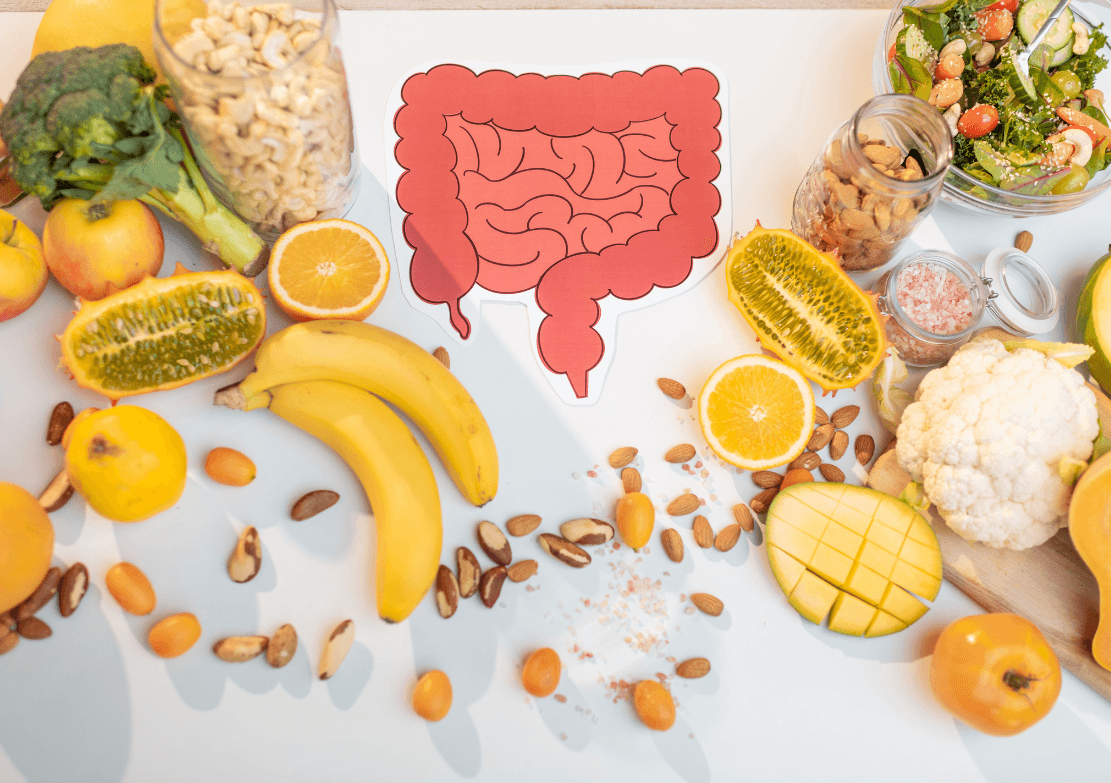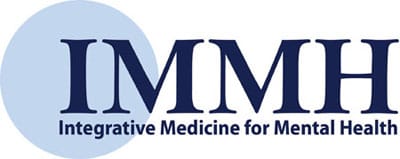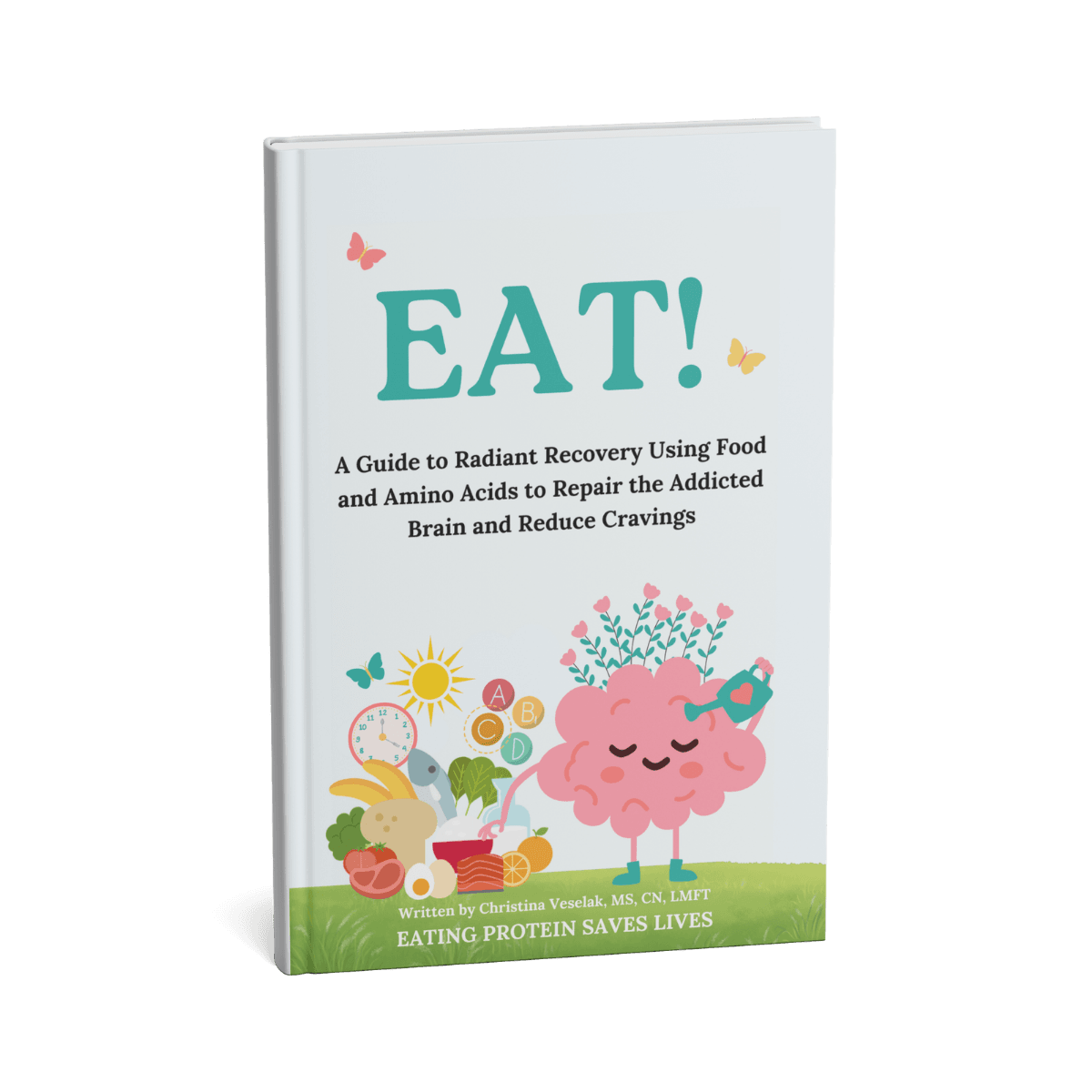Integrate Amino Acid Therapy into Your Practice
Is amino acid therapy missing from your practice?

Professional training programs in amino acid therapy and brain-based nutrition for addiction and mental health recovery.
Live and virtual events that connect professionals with the latest in recovery-focused nutrition and clinical applications.
Downloadable tools, guides, and research to support nutrition-based recovery practices.
Expert insights and practical strategies on brain-focused nutrition, recovery, and amino acid therapy.
WELCOME TO
Academy for Addiction & Mental Health Nutrition
The Academy for Addiction & Mental Health Nutrition believes that all addictive disorders, as well as MANY MENTAL HEALTH ISSUES, are driven by nutrient and neurotransmitter imbalances in the brain that can often be successfully addressed without the need for psychotropic medication.
A stable, well-functioning, and well-nourished brain is required for clients to effectively address the emotional, psychological, social, and spiritual issues, which impact their lives and need to be worked through for a successful recovery.
We teach clinicians, treatment providers and health/recovery coaches how to reduce cravings and recurrent use, and improve the quality of recovery by using amino acid and nutrient therapy, along with diet to effectively address many biochemical aspects of addictive and mood/behavioral disorders.
- Evidence-Informed Approach
- Certified Professional Training
- Clinician-Trusted Tools
- Targeted Nutrient Therapy
- Improved Client Outcomes
- Supportive Peer Network

OUR COURSES
AMINO ACID THERAPY COURSES

Level 1 Core Training
This six-month program introduces the use of amino acids, essential nutrients, and dietary strategies to address symptoms associated with neurotransmitter depletion.

Level 2 Advanced Training
This eight-month program builds on your foundational knowledge, focusing on functional biochemistry and nutrition in mental health and addiction recovery.

Discover the Power of Nutrition in Recovery
Learn the critical role that nutrition (or lack of) plays in Recovery in this 6 CEU interactive class*
WELCOME TO
Academy for Addiction & Mental Health Nutrition
The Academy for Addiction & Mental Health Nutrition believes that all addictive disorders, as well as MANY MENTAL HEALTH ISSUES, are driven by nutrient and neurotransmitter imbalances in the brain that can often be successfully addressed without the need for psychotropic medication.
A stable, well-functioning, and well-nourished brain is required for clients to effectively address the emotional, psychological, social, and spiritual issues, which impact their lives and need to be worked through for a successful recovery.
We teach clinicians, treatment providers and health/recovery coaches how to reduce cravings and recurrent use, and improve the quality of recovery by using amino acid and nutrient therapy, along with diet to effectively address many biochemical aspects of addictive and mood/behavioral disorders.
- Evidence-Informed Approach
- Certified Professional Training
- Clinician-Trusted Tools
- Targeted Nutrient Therapy
- Improved Client Outcomes
- Supportive Peer Network


Evidence-Based Nutrition Training for Sustainable Mental Wellness
Certifications in Amino Acid Therapy for Addiction Recovery and Sustained Mental Health
Become a Certified Recovery Nutrition Coach (CRNC) and confidently integrate brain-focused nutritional strategies into your work. Our certification programs provide the essential tools to identify biochemical imbalances, reduce relapse risk, and improve client outcomes through targeted amino acid and nutrient therapy.
Trusted by Professionals
The Academy for Addiction & Mental Health Nutrition has been invited to speak at some of the most respected national conferences in the fields of addiction, mental health, and functional nutrition. Our work has also been featured in leading industry publications, podcasts, and professional platforms committed to advancing integrative approaches to recovery. This recognition reflects the growing awareness of how nutritional strategies and brain-based interventions are transforming the future of treatment.






Join interactive Zoom sessions led by experienced instructors from the comfort of your home.
Choose a class schedule that fits your lifestyle with both AM and PM cohorts available.
Access downloadable resources, video replays, handouts, protocols, and more inside your student portal.
Connect with fellow students, alumni and practitioners in a private online forum for ongoing support and inspiration.
Check Out Our Upcoming Events

This is an ideal forum to hone your skills, ask questions and get support for your complex clients. Bring your complex cases and learn from each other in our low-pressure and safe discussion forum. Bring your practice success to new heights as you … Reduce Relapse! and Save Lives!
- 11 AM EST
- 4th Saturday of each month

Each month, we focus on a specific topic related to functional nutrition, brain health, and recovery. This is your opportunity to ask general questions, clarify concepts, and explore how the material applies in real-world settings. Note: This forum is not for discussing individual client cases. Please keep your questions general and focused on understanding the topic of the month.
- 11 AM EST
- 2nd Saturday of each month

Powerful nutritional strategies for effective addiction treatment and sustained recovery
Secure your seat early for the most transformative event in recovery nutrition.
Join us in 2026 for the Feed the Recovering Brain Conference — the only event dedicated to integrating brain-focused nutrition into addiction and mental health recovery.
- APRIL 2026
- Dublin, Ohio
New Paradigm in Mental Health and Addiction Recovery that will Transform Your Practice!
Our Amino Acid Therapy Training Program provides the knowledge and skills to help your clients rebalance their brain chemistry through nutrition and lifestyle changes, thus reducing depression, anxiety, insomnia and cravings, often within 20 minutes!
order your copy now
EAT! A Guide to Radiant Recovery Using Food and Amino Acids to Repair the Addicted Brain and Reduce Cravings
Fuel Your Brain, Transform Your Recovery
Cravings, mood swings, and relapse don’t happen in isolation—they’re deeply connected to what’s happening in your brain. EAT! is your step-by-step guide to using food and supplements to repair the addicted brain, reduce cravings, and support lasting recovery.
For too long, recovery programs have overlooked one crucial factor: proper brain nutrition. Without the right fuel, the brain struggles to stabilize mood, manage stress, and resist triggers. EAT! introduces the Feeding Recovery System, a structured, evidence-based approach to restoring balance and making recovery sustainable.

